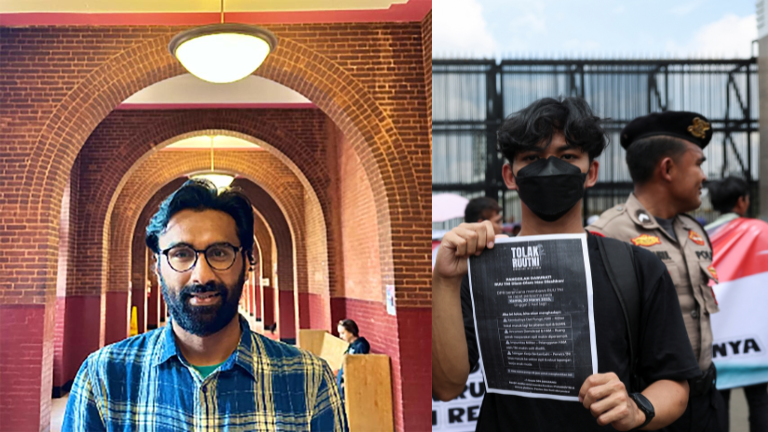Meerut Murder Case: Jail Routine, Rehabilitation, and a Ramayana Awakening
The Meerut murder case continues to grip the nation with its chilling details and unexpected developments. Ten days after Muskan and Sahil were taken into judicial custody for the brutal murder of Muskan’s husband, Saurabh, new details have emerged about their life behind bars. The Meerut murder case, which shocked Uttar Pradesh with its gruesome nature, has now entered a new phase as the accused adjust to jail life.
According to prison officials at Chaudhary Charan Singh District Jail in Meerut, Muskan and Sahil have completed their initial medical and psychological assessments. As per standard protocol, they have now been assigned specific duties inside the prison based on their preferences and skillsets. Their story, part of the larger Meerut murder case, is now also becoming one of rehabilitation and reintegration, at least within the prison system.
Muskan and Sahil’s New Prison Lives
In this high-profile Meerut murder case, Muskan, one of the key accused, has opted to learn sewing and embroidery. This vocational training is designed not only to keep inmates engaged but also to offer them a potential means of livelihood once they serve their time. Sahil, on the other hand, has been assigned to the jail’s vegetable farming unit, where he will be trained in cultivating seasonal crops.
Their training is scheduled to begin on April 1, and both have reportedly expressed a willingness to participate. Jail authorities emphasized that the goal is to help inmates find structure and meaning during their incarceration. Even in a case as shocking as the Meerut murder case, efforts are being made to encourage reform and reflection.
Muskan and Sahil had jointly carried out one of the most disturbing crimes in recent memory. They murdered Saurabh, Muskan’s husband, dismembered his body, and stuffed the remains into a plastic drum. The barrel was then sealed with cement and hidden, all before the pair went off on a vacation to Himachal Pradesh.
Inmate Requests and Prison Regulations
Despite their romantic association and joint involvement in the Meerut murder case, Muskan and Sahil’s request to share the same prison barrack was denied. Authorities cited strict jail manual regulations, which do not allow co-accused, especially of opposite genders, to be housed together. Instead, they have been placed in separate barracks and are being monitored closely.
Reports suggest that both individuals initially showed signs of emotional withdrawal but have since started adapting to the prison environment. The Meerut murder case has left a lasting imprint on public consciousness, and jail authorities remain vigilant to prevent any further complications.
MP Arun Govil’s Visit: Ramayana as Rehabilitation
In a spiritual twist to the unfolding narrative of the Meerut murder case, local Member of Parliament and veteran actor Arun Govil visited the district jail on Sunday. Govil, best known for his portrayal of Lord Ram in the iconic TV series Ramayan, distributed 1,500 copies of the Ramayana to inmates, including Muskan and Sahil.
Govil explained that his visit was part of a campaign to promote inner transformation among prisoners through spiritual guidance. The hope is that reading the Ramayana will offer inmates moral clarity and inspire a change in outlook, even for those accused in heinous crimes like the Meerut murder case.
Muskan reportedly became emotional upon receiving the sacred text, a moment that Govil described as significant.
“Even those who have strayed deserve a chance at reflection and redemption,” Govil stated during his visit.
Senior Jail Superintendent Dr. Viresh Raj Sharma confirmed that both Muskan and Sahil voluntarily accepted the Ramayana.
“We cannot say what impact it will have immediately, but the goal is to introduce positive influences. Even in a case as severe as the Meerut murder case, we aim to sow the seeds of transformation,” he added.
Broader Reflections on Crime, Punishment, and Rehabilitation
The Meerut murder case serves as a grim reminder of how quickly relationships can descend into violence. The nature of the crime—a meticulously planned and shockingly executed murder—has dominated headlines. Yet, the current turn of events brings focus to the long-term consequences of such actions and society’s role in rehabilitating offenders.
With Sahil starting farm work and Muskan learning sewing, prison authorities are using the tools at their disposal to guide inmates toward a path of reform. While critics may argue that those involved in heinous crimes deserve strict punishment rather than rehabilitation, jail officials and social reformers often highlight the importance of providing a second chance, even to those tied to a horrific case like the Meerut murder case.
What Lies Ahead
As the legal process unfolds, Muskan and Sahil remain behind bars, awaiting further hearings in connection to the Meerut murder case. Meanwhile, their jail life, structured around routine, labor, and even spiritual engagement, continues. Whether their story will remain one of crime and punishment or evolve into one of reflection and change remains to be seen.
The Meerut murder case continues to captivate the public, not just for the brutality of the crime but also for the unusual circumstances playing out behind bars. With Arun Govil’s intervention, spiritual teachings, and structured rehabilitation, perhaps this chapter will eventually highlight the power of redemption—even in the darkest of tales.







